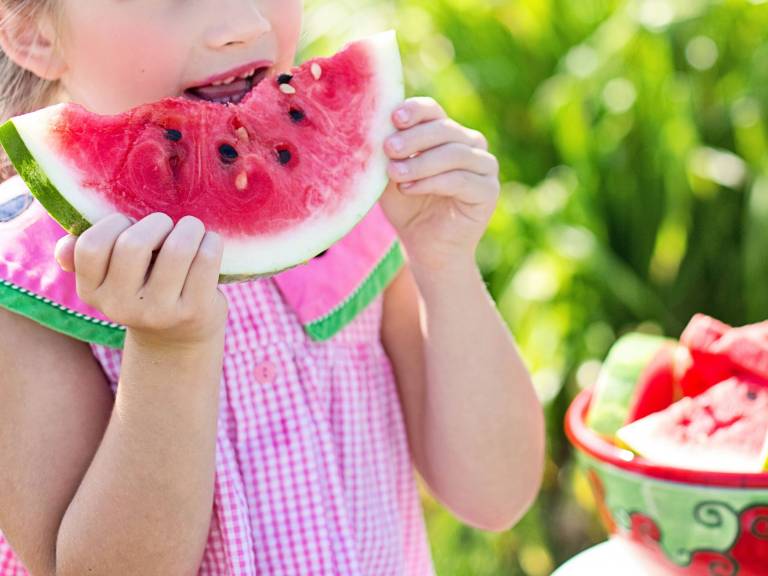'Genes are not destiny' when it comes to weight
8 October 2018
A healthy home environment could help offset children's genetic susceptibilities to obesity, according to new research led by UCL.

The study, published this week in JAMA Pediatrics, found that the impact of genetic factors on weight is roughly halved if a child is bought up in a less 'obesogenic' home environment where healthy eating and exercise is more prevalent.
Researchers collected data on Body Mass Index (BMI) and home environments from 925 twin pairs in the British Gemini cohort. The twins' families were asked in detail about many aspects of their home diet, physical activity, and media environments, such as the amount of healthy food in the home, how about how many media devices there were in the home and family media viewing habits.
This information was used to create a score for each home that indicated if it was a 'high-risk' or 'low-risk' environment for obesity. Of the 925 twin pairs, 508 were living in healthier, 'low-risk' home environments and 417 were living in less healthy 'high-risk' home environments.
"Our study is the first to examine how the early home environment relates to a child's genetic susceptibility to being overweight, even though it is widely believed to be a key influence on weight," said first author, Dr Stephanie Schrempft (UCL Behavioural Science and Health).
"The finding that genetic influence on weight was stronger among children living in riskier home environments supports a theory, developed by our group, that genetic susceptibility to obesity will be most highly expressed when individuals are living in a obesogenic environment that encourages excess consumption and low physical activity. In other words, 'the genetic background loads the gun, but the environment pulls the trigger'."
The researchers used the twin design to estimate the genetic and environmental influence on the BMI of children in both high- and low-risk obesogenic home environments. A third of the group consisted of identical twins who are 100% genetically the same, and two-thirds of fraternal twins who are approximately 50% genetically the same. Comparing the two types of twins allowed researchers to estimate genetic and environmental influence on BMI.
If identical twins are much more similar than fraternal twins for BMI, genes are important in shaping it. If the two types of twins are fairly similar for BMI despite their genetic differences, the home environment is an important factor.
Researchers found a much larger difference in similarity between identical and fraternal twins when children were bought-up in a high-risk home environment, indicating a greater genetic influence on children's BMI in an obesogenic environment. In contrast, in a low-risk home environment, both types of twins were much more similar, highlighting that a healthy home environment can override genetic influence on BMI.
In the high risk environment, genetic differences between children explained 86% of differences in children's BMI. In the low risk environment, genetic differences between children were less important in explaining differences in their BMI, accounting for only 39% of BMI differences.
Dr Clare Llewellyn (UCL Behavioural Science and Health) senior author, said: "We have known for decades that genes help to explain why people differ in their weight, but this often leads to the misconception that weight can't be changed. This study shows that genes are not destiny when it comes to weight. In childhood, the home family environment seems to influence the extent to which genetic predisposition to a lower or higher weight is fully expressed."
In particular, for children growing up in a healthy home food environment, genetic influence on weight was fairly modest, and the home environment was just as important. Ironically, this study points more than anything to the importance of the early environment for shaping a child's weight."
This work was supported by an Impact studentship to Dr Schrempft and Cancer Research UK grant.
Links
- Dr Clare LLewellyn's academic profile
- Dr Stephanie Schrempft's academic profile
- Paper in JAMA Pediatrics
Images
- Source: Pixabay
Media Contact
Rowan Walker
Tel: +44 (0)20 3108 8515
Email: rowan.walker [at] ucl.ac.uk
 Close
Close

